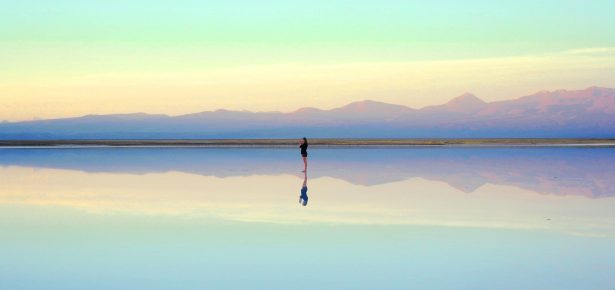
In the age of environmental justice, we tend to readily grasp how closely environmental challenges are intertwined with matters of identity along lines of race, ethnicity, gender, class, and other social forms. Still, the implications of the fact that modern American environmentalism emerged in the 1960s at the same political moment as more explicitly identity-based movements (like Women’s Liberation or Black Power) has gone largely unexamined. To what extent did that period’s debates about identity (personal as well as collective) influence environmental art and politics? And what role has literature played in mediating this relationship?
Those debates drew inspiration in no small part from the popularity of psychoanalysis in the mid-twentieth century, not as a clinical practice but as a foundation for social theory. Sigmund Freud suggested in Civilization and Its Discontents that the conscious self or ego is “a shrunken residue” of the psyche, the result of a variety of repressions imposed by modern civilization. The idea that the ego exists in vexed relationship with contemporary society underpinned numerous movements that began in the 1960s. The American New Left argued that modern society not only materially oppressed its citizens but also repressed their psyches, limiting individual self-fulfillment and self-expression. Feminist scholars did similarly, with emphasis on how society’s patriarchal hierarchy specifically repressed women. In all instances, writers and activists worked with a shared narrative template: “artificial” social forms limit the experience, expression, and fulfillment of natural or “authentic” selves.
Environmentalists of the era mobilized this narrative as well, taking seriously the distinction Freud drew between nature and civilization. Many of them struggled to reconcile the newly mainstream science of ecology—and its description of complex, interdependent networks—with the period’s broad politics of authenticity. For some, however, ecology merely shifted the scope of authenticity from the individual to the ecosystem as a whole. The poet Gary Snyder, for example, wrote in The Practice of the Wild that “there is a problem with the . . . human ego. Is it a mirror of the wild and of nature? I think not: for civilization itself is ego gone to seed and institutionalized in the form of the State.” Snyder’s comment aligns the ego with “civilization” and a primordial non-ego—the expansive, repressed content of the unconscious—with “nature,” drawing an opposition between artificial and natural that corresponds to an opposition between “ego” and “eco,” the self and the system. In other words, Snyder is suggesting that a truly authentic self is not a self at all. Because the body houses microbes, absorbs nutrients, and nourishes the soil and other creatures with waste and decomposition, one cannot easily draw clear distinctions between self and environment. In this respect, authenticity becomes a matter of identifying with the ecosystem writ large.
Another way of putting this is that identity, not environment, is often what we talk about when we talk about wilderness, or the idea of nature separate from culture, today. Literature has been central to this shift, dramatizing what it would mean to dissolve the ego to identify with the ecosystem as a whole. It also registers the fact that such a project is always rhetorical, never actual. Even if one’s self appears to dissolve, an “I” always remains to testify to that apparent dissolution. “I” cannot eliminate my own role in articulating my self-erasure. I can only illustrate the process of trying to do so. Ego-dissolution relies on its expression, speaking to a broader point about identity: that, far from being a matter of authentic nature, it takes shape in the stories we tell about it.
Another way of putting this is that identity, not environment, is often what we talk about when we talk about wilderness, or the idea of nature separate from culture, today. Literature has been central to this shift, dramatizing what it would mean to dissolve the ego to identify with the ecosystem as a whole. It also registers the fact that such a project is always rhetorical, never actual. Even if one’s self appears to dissolve, an “I” always remains to testify to that apparent dissolution. “I” cannot eliminate my own role in articulating my self-erasure. I can only illustrate the process of trying to do so. Ego-dissolution relies on its expression, speaking to a broader point about identity: that, far from being a matter of authentic nature, it takes shape in the stories we tell about it.
Latest Comments
Have your say!